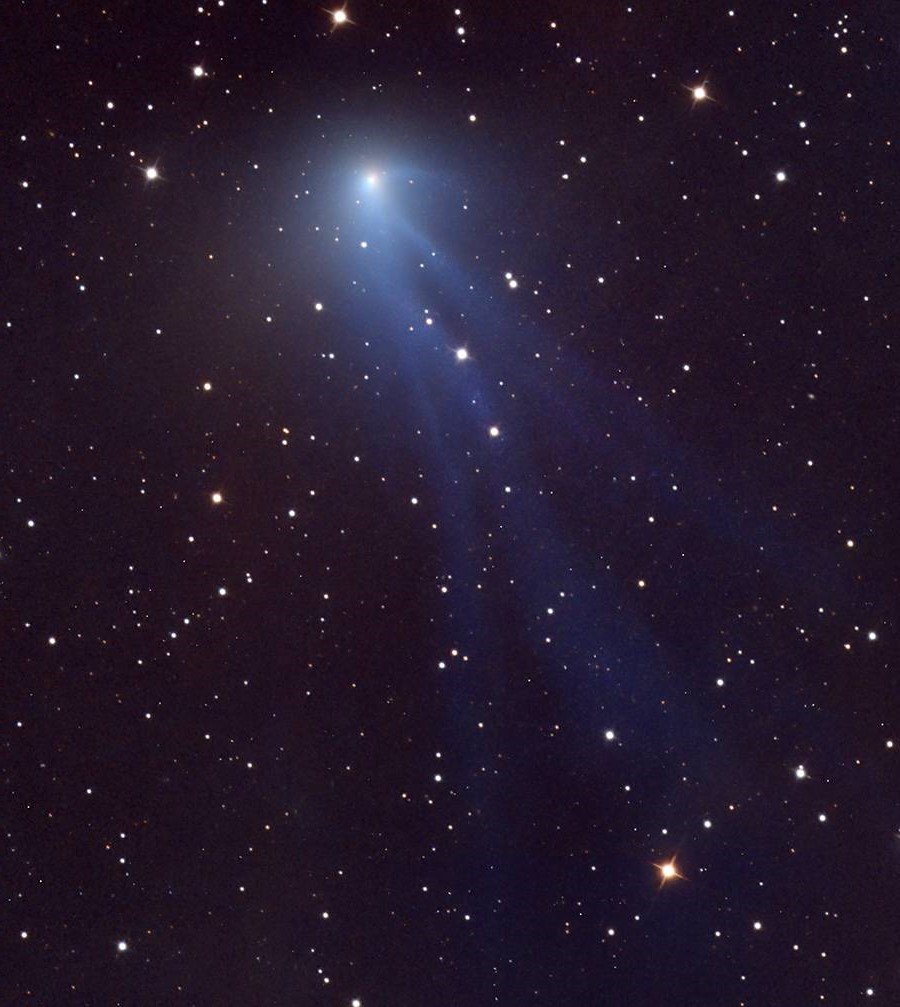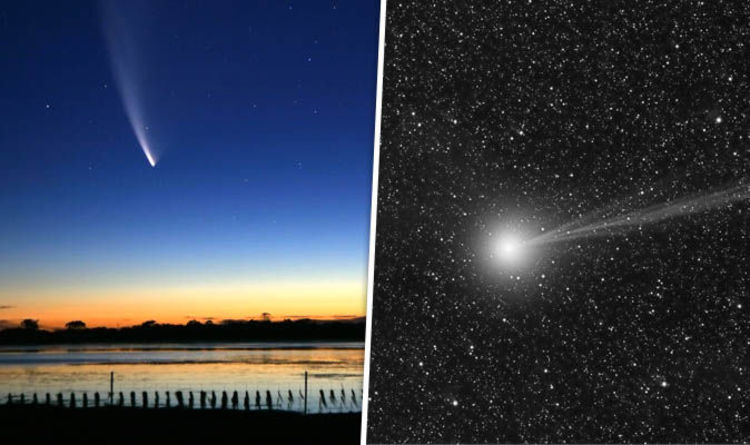People rarely worry about what’s going on high above their heads. And why should they? Whatever is out there, if it hits us – we’re dead; and if it doesn’t – why worry? This issue is that a lot of things can fall from the sky almost at any moment. In total, scientists have counted over 18,000 space objects close to Earth. Of these thousands, comets are the smallest part. There are only a little more than a hundred of them but if any of them ever smashes into Earth… well, Mars will become the third planet from the Sun.
Here are the top 8 comets flying closest to Earth.
1. 209P / LINEAR – 8 325 000 km
The further the comet is from Earth, the harder it is to observe it. Duh, I know. But this celestial wanderer, discovered in 2004, was first mistaken for an asteroid. Back then, it did not come very close to our planet. Noticing and correctly defining an object that’s 2.4km in diameter when it’s flying over 8,000,000 km away is not an easy job. By the way, in 2020 the comet will come to visit us again, and this time it should be much closer!

2. Pons-Winnecke Comet – 5,910,000 km
Comet Pons-Winnecke is also Jupiter’s little chew toy. This is a rather large celestial body (2.6 km in diameter), and it was supposed to the solar system, but the orbit of the comet has changed a lot thanks to Jupiter. It passed closest to Earth in 1927, but after a number of years its orbit deviated 10,000,000 km to the side, and since then it gets further and further away with every cycle (every six years).

3. 252P / LINEAR – 5,370,000 km
This recently discovered comet can be very dangerous to our planet, as its orbit is changed by Jupiter’s massive gravity. Little by little the trajectory changes and we’ll see how it ends for us in 2021.

4. Halley’s Comet – 5 010 000 km
It is one of the most famous celestial bodies in human history. Can you believe what people thought the first time they saw it chugging through the sky? The first time people took notes about Halle’s comet was in 240 BC, and it kept showing up quite frequently. The ancients believed that it’s a harbinger of doom! But nope, it’s just a rock flying through space.

5. IRAS-Araki-Alcock Comet – 4,680,000 km
Similarly to BA14m, IRAS-Araki-Alcock surprised the researchers in 1983. Thankfully, it’s orbit is huge and the next time we’ll see it will be around 2950 AD, which means – not our problem!

6. BA14 Panstarrs Comet – 3,555,000 km
In 2016 the whole scientific world was in shock when out of nowhere a comet of over 1 km in diameter showed up on the radars! Luckily, space is vast, and there was no fender-bending.

7. Tempel-Tuttle Comet – 3,435,000 km
Comet Tempel-Tuttle flies past our planet once every 33 years and every time it’s as horrifying as the first time. In 1366 it really t in our face. But it’s not even the worst part. Since it’s a comet, it leaves a trail of meteors, into which the Earth periodically falls. As it happened in 2009, where we witnessed a meteor shower made by the remnants that Tempel-Tuttle left behind in 1466.

8. Lexell Comet – 2,265,000 km
The closest encounter we’ve had was the Lexell’s comet, which zoomed by at a distance approximately equal to six times the distance from the Earth to the Moon. It was last seen in 1770, as it hung around in the night sky for an entire month.


















+ There are no comments
Add yours